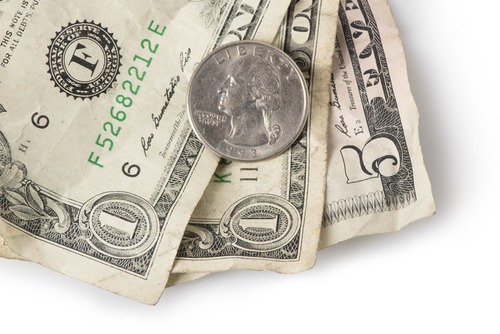
The Pennsylvania Chamber of Business and Industry issued a statement last week on a Pennsylvania Department of Labor and Industry report that analyzes the minimum wage in the state.
The report, called Analysis of the Pennsylvania Minimum Wage, found that an estimated 74,400 workers were earning minimum wage or less in 2020, which was the lowest number on record and 18 percent below 2019, the previous low. Workers earning minimum wage or less represented 2.4 percent of all hourly workers and 1.3 percent of all workers. Further, an estimated 693,100 Pennsylvania workers earned near minimum wage — $7.26-$12.00 per hour – in 2020. That was 245,300, or 26.1 percent, lower than in 2019 when it was 938,400. The minimum wage in the state is $7.25 per hour and it was last bumped up in 2009.
Pennsylvania Gov. Tom Wolf recently called for an increase to the state’s minimum wage to $12 per hour starting July 1, with annual increases of $0.50 until reaching $15 per hour on July 1, 2027.
Pennsylvania Chamber of Business and Industry President and CEO Gene Barr, citing data from the report, said state lawmakers should think twice about that plan.
“For years, advocates have politicized the minimum wage issue, touting it as the panacea to helping low-income Pennsylvania families out of poverty. However, the state Department of Labor and Industry’s 2021 Minimum Wage Report reveals important data that demonstrates why focusing on this policy is misguided. According to the report, 84 percent of minimum wage earners have no children; 34 percent have family incomes of $75,000, with 22 percent over $100,000; and nearly 70 percent are younger than 25 years old,” Barr said in a statement.
Barr added that lawmakers should develop public policies that target assistance to low-income families and do not have a negative impact on jobs.
“We continually hear from our broad-based membership – particularly small businesses – that these mandates have real-world consequences for both the employer and their workforce. A recent study by the nonpartisan Congressional Budget Office found that an increase to $15 an hour would lead to the loss of 1.4 million jobs nationwide, around 500,000 more than the number of people the CBO projects will be helped out of poverty,” Barr said.
Barr added that the current proposal would be especially difficult for restaurants, which have been struggling to stay afloat with shutdown orders and capacity restrictions.
“The proposed elimination of the tipped wage system means many would somehow have to manage a roughly 240 percent increase in labor costs in just a few months. Advocates for this proposal are either disconnected from reality or indifferent to the plight of these struggling small business owners and their workers,” Barr said. “No one disputes that some individuals benefit from mandated wage increases, but the fact is, others end up being hurt – including some of the very people advocates claim they want to help. We are urging lawmakers to put political differences aside and focus on alternative proposals that help struggling families and Pennsylvania’s small businesses.”